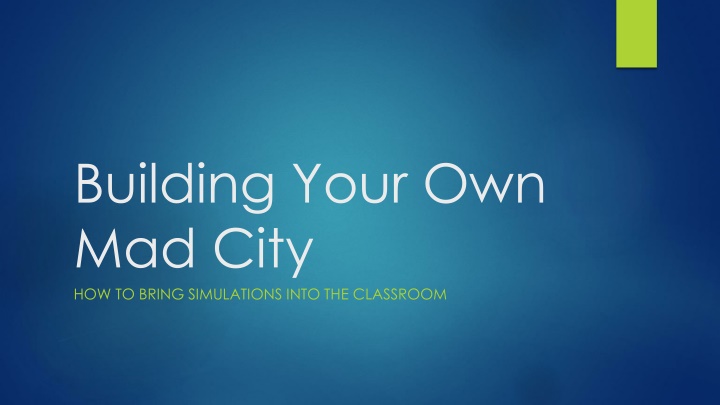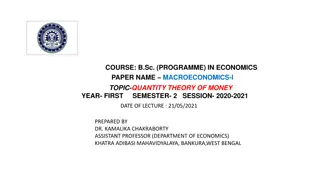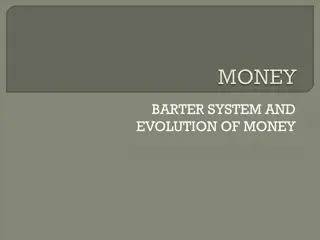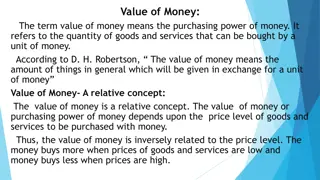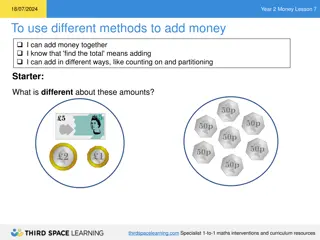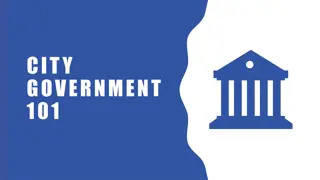Engaging Students with Real-Life Simulations in the Classroom
Utilize simulations like Mad City Money to teach budgeting, decision-making, and financial responsibility in a hands-on manner. Students create profiles, manage bills, consider parenthood costs, and explore various life expenses, fostering practical skills and critical thinking.
Download Presentation

Please find below an Image/Link to download the presentation.
The content on the website is provided AS IS for your information and personal use only. It may not be sold, licensed, or shared on other websites without obtaining consent from the author.If you encounter any issues during the download, it is possible that the publisher has removed the file from their server.
You are allowed to download the files provided on this website for personal or commercial use, subject to the condition that they are used lawfully. All files are the property of their respective owners.
The content on the website is provided AS IS for your information and personal use only. It may not be sold, licensed, or shared on other websites without obtaining consent from the author.
E N D
Presentation Transcript
Building Your Own Mad City HOW TO BRING SIMULATIONS INTO THE CLASSROOM
Mad City Money- Real Life Simulation Mad City Money is a real life budgeting and choice making simulation for students. This program gives students an occupation, family, income and responsibilities. As the simulation progresses, students make decisions on other budget items such as a home, car, groceries, child care, fun, and additional material purchases. Students receive a budget sheet and few instructions while making their own decisions.
Welcome to Mad City Move from table to table and make your purchase choices! Once you ve visited all tables go back to your seats and your complete budget sheets. BREAK TIME!!!!!!
Mad City What did you think? How would your students react? Is this transferrable to the classroom? How can you create your own Mad City?
Who are you??? Creating the Student Profiles What do you want to be? How much will you make? How much education will you need? Will you have to take out student loans? How will that affect your financial decisions long term? Resources Occupational Outlook Handbook https://www.bls.gov/ooh/ Payscale.com http://www.payscale.com/
Bills, Bills, Bills Credit Card Debt Decide on a reasonable amount for the students to have accumulated Have them calculate the minimum payment to be 3% of the balance each month Student Loans Standardize it! 4- year degree = $30,000 Graduate School = $60,000 Post Graduate = $80,000
The Joys of Parenthood Give every student at least one child and the age that child is now. Have the student research the average price of day care for a child of that age in their area. Look up prices for diapers, wipes, formula, and other child care needs. What happens when your child gets sick? Do you have sick time? Can your spouse take off?
Keeping Up with the Joness Housing Transportation Groceries and Dining Out Entertainment Furnishings Clothing Child Care Shopping (Wants) FATE!!
Budget Basics Use your own budget as a guide. Contact the Louisiana Jump$tart Coalition or one of their partners for budget worksheets that can be used for any simulation. louisianajumpstart@gmail.com See your packet for examples from Mad City Money.
Debriefing Possible Questions to Ask: Were you able to live on your income? Who ran out of money? Who saved money? Who bought a brand new big truck or sports car as their first purchase? How did that work for you? How did you determine what kind of transportation to buy? Who bought a brand new vehicle for themselves and a really old vehicle for a spouse? How do you think that s going to work in real life? Did anyone buy a big house? Did that work for you? When you are first starting your career, what will you be able to afford? What kind of furniture did you buy? Why did you choose it?
Debriefing Who was unhappy with their salary? Did you want to make more money? How could you do that? Who bought nice clothes for themselves and not-so-nice clothes for a spouse or child? Why did you do that? How important are clothes to the job you have? What were your wants at the Mall? Could you afford them? Were you able to set up a savings plan for your wants? How expensive is food? How did you make your food choices? What did you learn about the cost of raising children? Who liked getting the visits from the Fickle Finger of Fate? Can you see any of these things happening to you? What s the impact of unexpected income changes or expenses on your budget? What can you do to make wiser choices?
Debriefing Let s talk about fun. How much does fun cost? How can you have fun without spending a lot of money? How did you get so much credit-card debt? How many months will it take you to pay it off? Once you ve paid it off, how can you best use the money you d allocated for your debt? How did it feel to have to make big decisions with little information and minimal directions from me? Where could you get help in the future? What are one or two things you ll go home and tell your parents or siblings about money?
Building Your Own City! Engage the students. Put the majority of the work on them. Create a portion of the information. Create a space for honest discussion. Reach out to Louisiana Jump$tart Coalition for additional resources!! louisianajumpstart@gmail.com
Build Your Own City Jessica Oliver Director of Financial Outreach joliver@pelicanstatecu.com Free assistance with creating a program or bringing one to your school!
